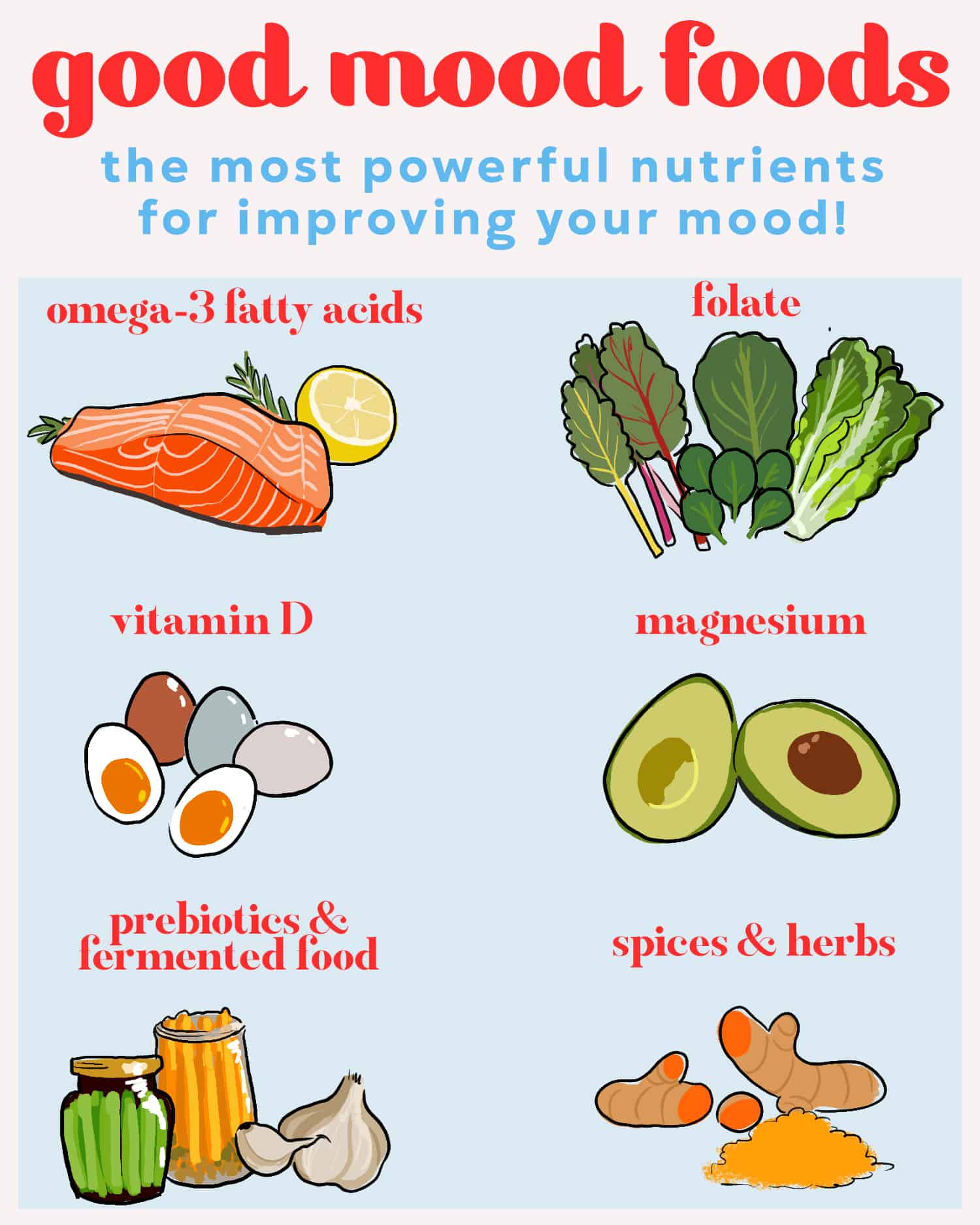Giada sat down with Harvard-trained Nutritional Psychiatrist, Dr. Uma Naidoo, to chat about the connection between food and mood - and we're letting you in on the secrets!
We all know the saying: "you are what you eat." We all know that we tend to feel better physically when we focus on eating healthier food, too!
It's no secret that the food we eat plays a huge role on our physical health, but the less-talked about connection is how it can effect mental and emotional wellbeing. Turns out, scientifically, what we're putting into our gut directly affects what is going on in our brain.
" The foods we consume have a big influence on our mental health and cognitive function due to the connection between our gut and our brain. These organs are intimately related before we are even born, as they develop from the same exact cells in the embryo. So throughout life these 2 organs remain connected via the vagus nerve, which connects nerve endings in our guts to nerve endings in our brains. Through this gut-brain connection, our gut (digestive tract) and our minds quite literally speak to each other!" - Dr. Uma Naidoo
We learned from Dr. Uma that more than 90% of the receptors for our serotonin (the key hormone in mood stabilization and happiness) are located in our gut! That alone proves how significant this connection is.
The great news: we have the autonomy to take advantage of this relationship! By choosing to eat food that supports our gut health (and consequently, our mental health) we can do the most for our bodies and brains. Here are Dr. Uma's 6 recommended kinds of food and nutrients for supporting a good mood!


Omega-3 Fatty Acids
"Omega-3’s are essential fatty acids (essential meaning that our bodies can't make them, we have to obtain them through the food we eat) that are incredibly anti-inflammatory and supports a healthy brain and reduced mood and anxiety symptoms. So make sure you’re including fatty fish like wild caught sock-eye salmon, sardines and mackerel. Also plant based sources of short chain omega-3’s are chia seeds, flax seeds, walnuts and sea vegetables."

Folate
"Folate is an important vitamin that supports the function of our neurotransmitters and keeps our brains running at full throttle. Studies have shown it to be associated with decreased symptoms of depression and slower cognitive decline. Folate is found in leafy greens like spinach, romaine, collard greens, swiss chard and mustard greens, so make sure to eat your greens every day!"

Vitamin D
"Vitamin D hugely supports our immune system and promotes the growth of healthy gut bacteria which has been associated with reduced symptoms of depression, anxiety and schizophrenia. While you can add dried mushrooms, wild salmon, cage-free egg yolks, very few foods naturally contain vitamin D so unless you spend about 10 minutes a day getting some sunshine to get the best source of vitamin D. It is important for a healthy body and mind to consider supplementing as many of us are deficient. Always discuss this with your doctor."

Magnesium
"Magnesium is an important anti-inflammatory mineral that helps calm the nervous system to reduce anxiety and improve sleep, and we all know that getting a good night's sleep is crucial for a good mood! It can be found in avocados, almonds, chickpeas and bananas."

Prebiotics and Fermented Foods
"Fermented foods and prebiotics are powerful in their ability to reset our microbiome which helps the gut have positive conversations with our brain. A probiotic supplement helps with physical and mental health and prebiotics feed the gut microbes. Fermented foods and prebiotic foods have been shown to relieve symptoms of depression and promote healthy hormone function. You can find live active cultures in plain unsweetened dairy or non-dairy yogurts, and fermented foods like miso, sauerkraut and kimchi. Prebiotic foods include legumes, oats, garlic, onions and asparagus."

Spices and Herbs
"I love using flavorful spices and herbs in my cooking for their antioxidant and antidepressant benefits! Some of my favorites include turmeric, saffron and oregano."
Not too bad, right? Luckily, all of the listed foods above are delicious and widely available!















0 comments